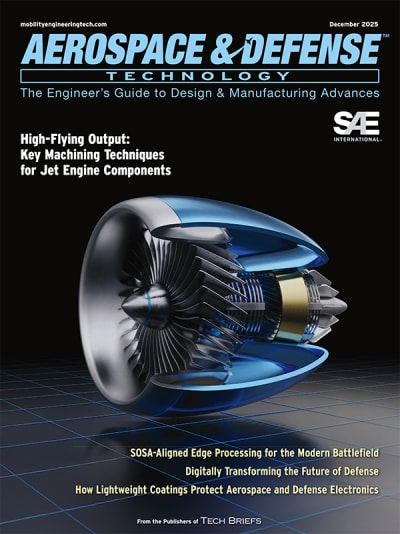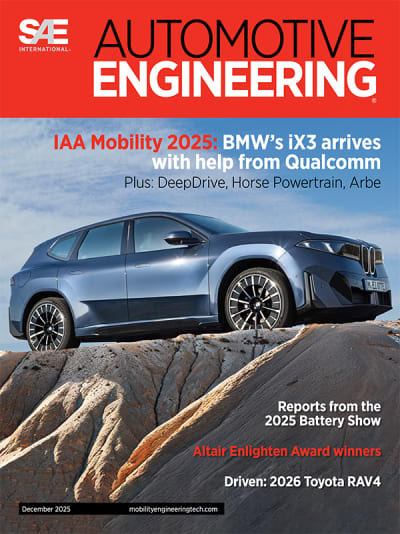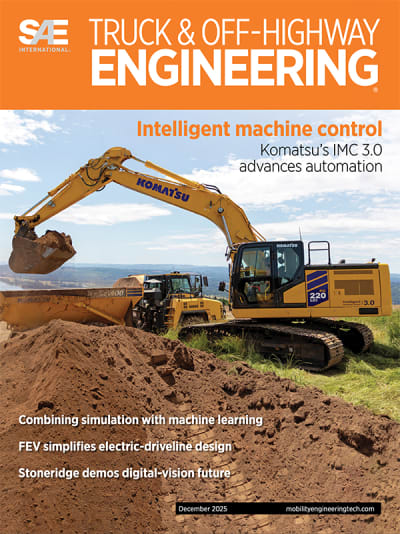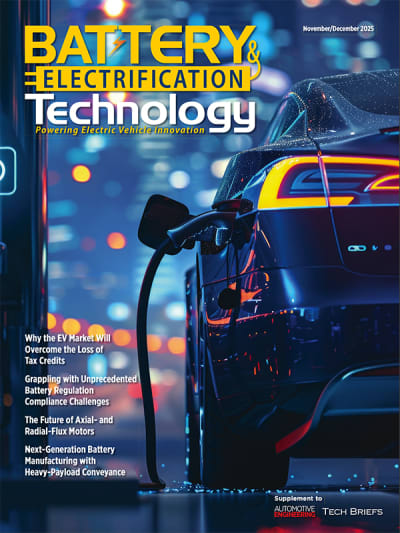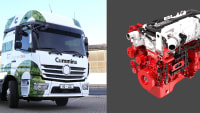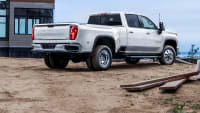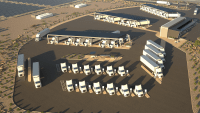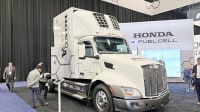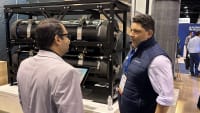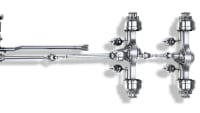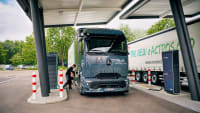Is Hydrogen the Future for Trucking?
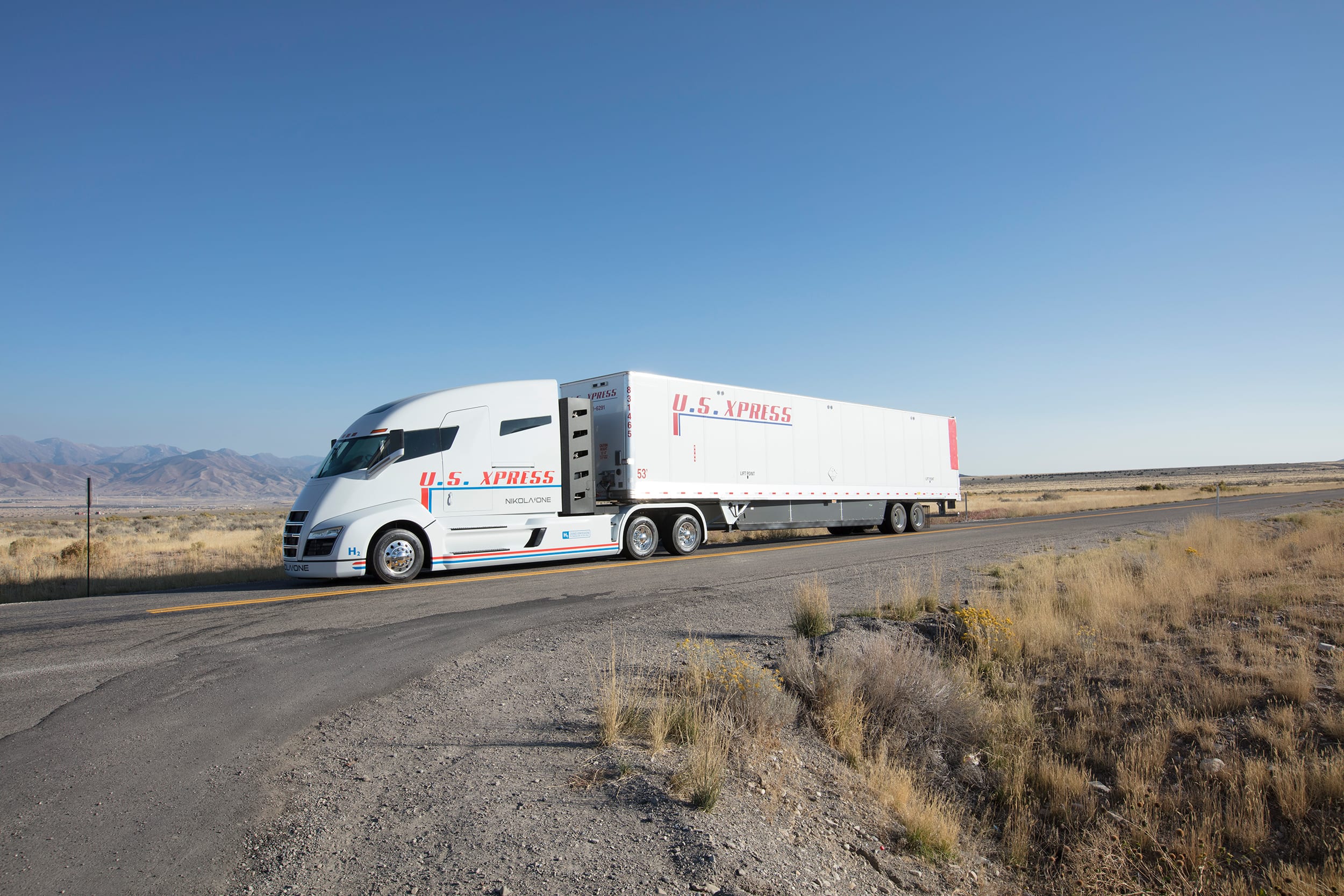
Powertrain electrification is becoming the new standard for the automotive and commercial industries. The passenger car market is primarily meeting the demand for lower emissions through battery electric vehicles (BEV) like the new Audi e-tron and Hyundai Kona. Alternative powertrain options are also coming for the heavy-duty market. Unlike light-duty vehicles, the diesel-reliant trucking industry is focusing on hydrogen fuel cells as the primary powertrain replacement.
Despite each market’s seemingly disparate approach to zero emission options, hydrogen fuel cell electric vehicles (FCEV) have analogous powertrains to BEVs. Both leverage batteries to power electric motors driving the wheels. However, the difference remains in the source of recharging the cells. BEVs require an external energy source for recharging power while hydrogen fuel cells utilize the fuel on the vehicle. This duality in power sources is not new to the mobility industry and is recognized as a necessity moving forward.
Matthew Borst is a content editor at SAE International in the Global Products Group. Previously, he worked as a technical writer at Polaris Industries and was responsible for writing service manuals for various powersports products. He graduated from Minnesota State University, Mankato with a degree in Automotive Engineering. His interests include the latest automotive industry news, movies, hockey, and anything that keeps his two kids entertained.
Contact him regarding any article or collaboration ideas by e-mail at
Top Stories
INSIDERRF & Microwave Electronics
![]() FAA to Replace Aging Network of Ground-Based Radars
FAA to Replace Aging Network of Ground-Based Radars
PodcastsDefense
![]() A New Additive Manufacturing Accelerator for the U.S. Navy in Guam
A New Additive Manufacturing Accelerator for the U.S. Navy in Guam
NewsSoftware
![]() Rewriting the Engineer’s Playbook: What OEMs Must Do to Spin the AI Flywheel
Rewriting the Engineer’s Playbook: What OEMs Must Do to Spin the AI Flywheel
Road ReadyPower
![]() 2026 Toyota RAV4 Review: All Hybrid, All the Time
2026 Toyota RAV4 Review: All Hybrid, All the Time
INSIDERDefense
![]() F-22 Pilot Controls Drone With Tablet
F-22 Pilot Controls Drone With Tablet
INSIDERRF & Microwave Electronics
![]() L3Harris Starts Low Rate Production Of New F-16 Viper Shield
L3Harris Starts Low Rate Production Of New F-16 Viper Shield
Webcasts
Energy
![]() Hydrogen Engines Are Heating Up for Heavy Duty
Hydrogen Engines Are Heating Up for Heavy Duty
Energy
![]() SAE Automotive Podcast: Solid-State Batteries
SAE Automotive Podcast: Solid-State Batteries
Power
![]() SAE Automotive Engineering Podcast: Additive Manufacturing
SAE Automotive Engineering Podcast: Additive Manufacturing
Aerospace
![]() A New Approach to Manufacturing Machine Connectivity for the Air Force
A New Approach to Manufacturing Machine Connectivity for the Air Force
Software
![]() Optimizing Production Processes with the Virtual Twin
Optimizing Production Processes with the Virtual Twin

